
Mary Garden was a Scottish operatic soprano with a substantial career in France and America in the first third of the 20th century. She spent the latter part of her childhood and youth in the United States and eventually became an American citizen, although she lived in France for many years and eventually retired to Scotland, where she died.

Charles Simon Favart was a French playwright.

The Opéra-Comique is a Paris opera company, which was founded around 1714 by some of the popular theatres of the Parisian fairs. In 1762 the company was merged with, and for a time took the name of its chief rival the Comédie-Italienne at the Hôtel de Bourgogne, and was also called the Théâtre-Italien up to about 1793, when it again became most commonly known as the Opéra-Comique. Today the company's official name is Théâtre national de l'Opéra-Comique, and its theatre, with a capacity of around 1,248 seats, sometimes referred to as the Salle Favart, is located in Place Boïeldieu, in the 2nd arrondissement of Paris, not far from the Palais Garnier, one of the theatres of the Paris Opéra. The musicians and others associated with the Opéra-Comique have made important contributions to operatic history and tradition in France, and to French opera. Its current mission is to reconnect with its history, and discover its unique repertoire, to ensure production and dissemination of operas for the wider public. Mainstays of the repertory at the Opéra-Comique during its history have included the following works which have each been performed more than 1,000 times by the company: Cavalleria Rusticana, Le chalet, La dame blanche, Le domino noir, La fille du régiment, Lakmé, Manon, Mignon, Les noces de Jeannette, Le pré aux clercs, Tosca, La bohème, Werther and Carmen, the last having been performed more than 2,500 times.
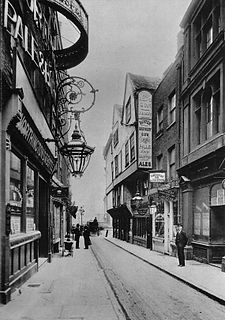
The Opera Comique was a 19th-century theatre constructed in Westminster, London, between Wych Street, Holywell Street and the Strand. It opened in 1870 and was demolished in 1902, to make way for the construction of the Aldwych and Kingsway.
Opéra comique is a genre of French opera that contains spoken dialogue and arias. It emerged from the popular opéras comiques en vaudevilles of the Fair Theatres of St Germain and St Laurent, which combined existing popular tunes with spoken sections. Associated with the Paris theatre of the same name, opéra comique is not always comic or light in nature; Carmen, perhaps the most famous opéra comique, is a tragedy.
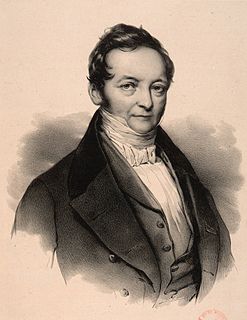
Jules-Henri Vernoy de Saint-Georges, French playwright, was born and died in Paris. He was one of the most prolific librettists of the 19th century, often working in collaboration with others.
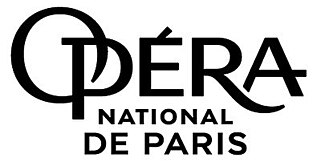
The Paris Opera is the primary opera and ballet company of France. It was founded in 1669 by Louis XIV as the Académie d'Opéra, and shortly thereafter was placed under the leadership of Jean-Baptiste Lully and officially renamed the Académie Royale de Musique, but continued to be known more simply as the Opéra. Classical ballet as it is known today arose within the Paris Opera as the Paris Opera Ballet and has remained an integral and important part of the company. Currently called the Opéra national de Paris, it mainly produces operas at its modern 2,723-seat theatre Opéra Bastille which opened in 1989, and ballets and some classical operas at the older 1,979-seat Palais Garnier which opened in 1875. Small scale and contemporary works are also staged in the 500-seat Amphitheatre under the Opéra Bastille.

Cendrillon (Cinderella) is an opera—described as a "fairy tale"—in four acts by Jules Massenet to a French libretto by Henri Caïn based on Perrault's 1698 version of the Cinderella fairy tale.
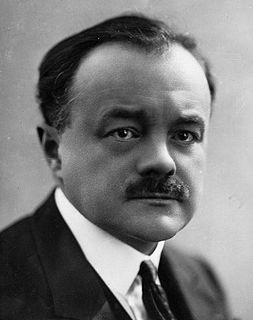
Albert Louis Wolff was a French conductor and composer of Dutch descent. Most of his career was spent in European venues, with the exception of two years that he spent as a conductor at the Metropolitan Opera and a few years in Buenos Aires during the Second World War. He is most known for holding the position of principal conductor with the Opéra-Comique in Paris for several years. He was married to the French mezzo-soprano Simone Ballard.

Richard Barker Cobb Temple was an English opera singer, actor and stage director, best known for his performances in the bass-baritone roles in the famous series of Gilbert and Sullivan comic operas.
Opéra bouffon is the French term for the Italian genre of opera buffa performed in 18th-century France, either in the original language or in French translation. It was also applied to original French opéras comiques having Italianate or near-farcical plots.
The French term comédie mêlée d'ariettes was frequently used during the late ancien régime for certain types of opéra comique.
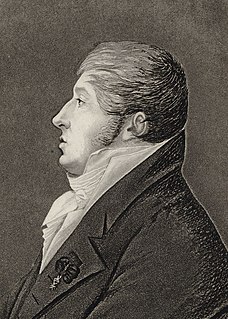
Nicolas Isouard was a French composer.

The Théâtre Lyrique was one of four opera companies performing in Paris during the middle of the 19th century. The company was founded in 1847 as the Opéra-National by the French composer Adolphe Adam and renamed Théâtre Lyrique in 1852. It used four different theatres in succession, the Cirque Olympique, the Théâtre Historique, the Salle du Théâtre-Lyrique, and the Salle de l'Athénée, until it ceased operations in 1872.

The Théâtre Feydeau, a former Parisian theatre company, was founded in 1789 with the patronage of Monsieur, Comte de Provence, and was therefore initially named the Théâtre de Monsieur. It began performing in the Salle des Tuileries, located in the north wing of the Tuileries Palace, then moved to the Salle des Variétés at the Foire Saint-Germain, and finally, beginning in 1791, settled into its own custom-built theatre, the Salle Feydeau located on the rue Feydeau. The company was renamed Feydeau after the royal family was arrested during the French Revolution.

L'ambassadrice is an opera or opéra comique in 3 acts by composer Daniel Auber. The work's French language libretto was written by Eugène Scribe and Jules-Henri Vernoy de Saint-Georges. The opera's world premiere was staged by the Opéra-Comique at the Théâtre des Nouveautés in Paris on 21 December 1836. It was revived in Paris on 4 January 2013 by the opera company Les Frivolités Parisiennes at the initiative of two research fellows who specialized in nineteenth-century historically informed performance, Pierre Girod and Charlotte Loriot.

Italian ballet is the training methods and aesthetic qualities seen in classical ballet in Italy. Ballet has a long history in Italy, and it is widely believed that the earliest predecessor of modern-day ballet originated in the Italian courts of the Renaissance. Two predominant training systems are used to teach Italian ballet today: the Cecchetti method, devised by Enrico Cecchetti, and that of the La Scala Theatre Ballet School.
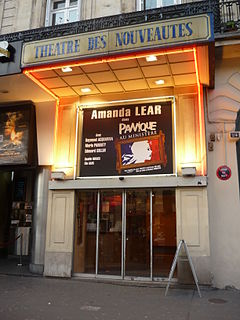
The Théâtre des Nouveautés is a Parisian theatre built in 1921 and located at 24 boulevard Poissonnière. The name was also used by several earlier Parisian theatre companies and their buildings, beginning in 1827.

The Salle de la Bourse was a Parisian theatre located on the rue Vivienne in the 2nd arrondissement, across from the Paris Bourse, hence the name. It was successively the home of the Théâtre des Nouveautés (1827–1832), the Opéra-Comique (1832–1840), and the Théâtre du Vaudeville (1840–1869). The theatre was demolished in 1869.

The Opéra-National was a Parisian opera company that the French composer Adolphe Adam founded in 1847 to provide an alternative to the two primary French opera companies in Paris, the Opéra and the Opéra-Comique. The goals of the new company were to "foster new compositional talent," revive opéras comiques from an earlier period, and produce opera at a lower ticket price for a wider public.
















